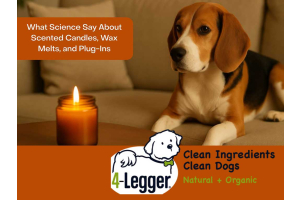Monthly Archives: January 2016
- - January 11, 2016
A more holistic approach to pet care is becoming increasingly important if our pets are to live healthy and happy lives.
As the incidence of animal diseases including cancers and allergies increases, a more holistic approach to pet care is becoming increasingly necessary. Holistic animal care addresses the entire body, rather than its parts and it considers the animal’s mental and physical health, the environment around them and focuses on prevention as well as just the treatment of symptoms.
Nutrition is central to holistic animal care and influences your pet’s emotional as well as physical wellness. Poor nutrition compromises an animal’s curative potential and leads to health imbalances, toxicity and disease. Good nutrition promotes a strong immune system, normal reproduction and growth.
Food communicates with cells and controls our pet’s genes! Due to our more recent understanding of ‘Nutrigenomics’ we are increasingly aware how quality foods nourish your pet’s genes, (cats and dogs
- - January 11, 2016
Be aware and read the labels on the wet and dry food you buy for your pets to ensure that the ingredients are wholesome and that they don’t contain chemical additives or fillers.
Whilst appropriately balanced home prepared food is a very healthy option for your pet, it is not always practical for many people and high quality commercial foods are a good alternative. But as pet owners, we need to be discerning and read the labels on the food products we buy.
Look out for labels that say, organic, all-natural, human grade quality. With dried or canned foods and also pet treats, choose those which are sugar-free and are low or devoid of fillers and chemical additives. This includes chemicals added for preservation, colour or taste enhancement, including nitrites and sulphites. These chemicals can cause inflammation, allergies and metabolic complications in animals, by damaging healthy tissues and placing undue stress on vital organs. Whilst the animal’s body detoxifies harmful waste products
- - January 11, 2016
Dogs and Cats are exposed to toxins and chemicals on a daily basis which can lead to concerns about pet health.
Every pet has a considerable amount of chemicals in their body, because they walk through them, breath them in, eat and drink them. Unfortunately toxins and chemicals can be ingested and absorbed by our pets from unfiltered tap water and the everyday chemicals we use in our homes, gardens, in animal shampoos and creams, worm, flea and tick preventatives and the toys we provide for their entertainment.
One well recognised chemical toxin is BPA (Bisphenol A) This is used to make plastics and resins and is found in plastic water bottles, canned foods (pets and humans), food packaging and it leaches into foods and water. BPA is linked to cancers and obesity. It mimics oestrogen in the body and has hormone disrupting effects that not only affect our health but our pet’s health too.
As pet owners, we need to ensure a wholesome, toxin-free approach to diet and the environment around





